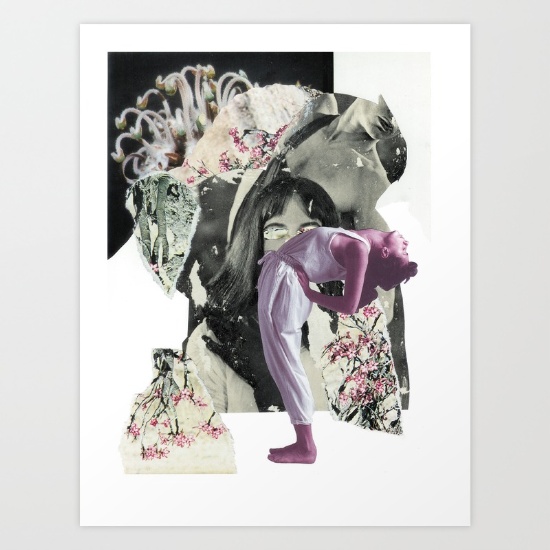
Lean Into It / Sweet Chaos – By Stephanie Wild
Since 2008 I have been going through a very challenging kind of spiritual training. It’s called parenting. This training never really stops and there is no viable way to quit. Lessons can occur at all hours of the day and night, and are always different, often painful, stressful, exhausting, and very very challenging.
When she was a baby, the lessons involved a lot of sleep deprivation, confusion, anxiety and coping with the painful ringing in my chest every time my tiny master cried out. I likened it to the kinds of Zen where the master hits you on the head to make you pay attention. I have, for a long time, considered all of life to be about spiritual learning, and why should this most central, mundane, intense and special part of my life be any different. My baby was born into water with her eyes open. Still connected, it seemed, to the source from which she came. Newborns always appear this way to me: little Buddhas. Present. Totally in the moment whether they are crying or sleeping or staring into space.
As they get older they learn to be less present, but their lessons can teach us to be more present in the most challenging ways. Our children present us with out own incredible vulnerability and powerlessness. They give us the terrifying and agonising experience of being an impotent god. We don’t have magic wands to take away their pain and suffering, to change the behaviour of other children, to make everything okay. They lash out and push boundaries and try to manipulate us, and that is all part of their learning as well as our own.They reflect back to us our own inner-child.
The Moon represents the inner-child in a person’s chart. The sign it is in indicates the character of the inner-child and the house placement of the moon indicates the focus and wider patterns of this sensitive, vulnerable, reflective and core part of us. Aspects to the Moon with other planetary bodies reveal our key challenges, opportunities and gifts. The Moon reflects our relationship with our mother, our own emotional selves, and also our children. On a similar note, I have written before about Parenting By the Moon, of observing the quick-changing moods as they reflect in relating to children, a practice I am often too busy to think about!
The Child archetypes of fairy tales can be mischievous, but tend towards the innocent.
They are easily tempted, like Goldilocks, the girl in the Red Shoes, or Little Red Riding Hood. They will easily stray from the safe path, their innocence and lack of awareness is sometimes startling.
The way we treat this child self is reflected in the stories involving evil step parents. Generally the children in these stories are presented as pure, good and innocent, the step sisters are the greedy, whiny ones. From an archetypal perspective all of these characters are parts of self. and in our daily lives we enact these patterns, projecting the interior into the external world.
We can be the Too Good Mother/Father archetype one minute, then, when our children push us to the brink of tolerance and we have nothing left to give we can too easily flash into the rage of the Evil Tyrant. We can even become children ourselves, in trying to cope with our children, putting them into a role where they must act as an adult because we have lost all control.
All of this is horrible, wonderful, challenging, learning
The lesson is always to be present, and;
- Usually, to be patient. To be grounded like earth.
- Often, to be like water, to flow with empathy and gently shape the situation.
- Frequently, to be air-like, to use logic and reason, to encourage these faculties to develop in our children, when they are not too overwhelmed to think clearly.
- Sometimes, to embody the passion and bravery – the swift action of fire – but carefully, because fire can also burn, and violence does not bring peace.
Parenting is the hardest job, and yet least socially rewarded job. As parents we are expected to do so many conflicting things – to be perfect, to be saints, to be disciplined, to be kind and generous and nurturing, to be strict and unmovable forces, to never give in or reward ‘bad’ behaviour, and yet to empathise with the struggles of powerless that our children face on a daily basis… and so so many other things. The impossible struggles might seem hopeless and pointless at times, but they do offer many many opportunities for learning and growing.
